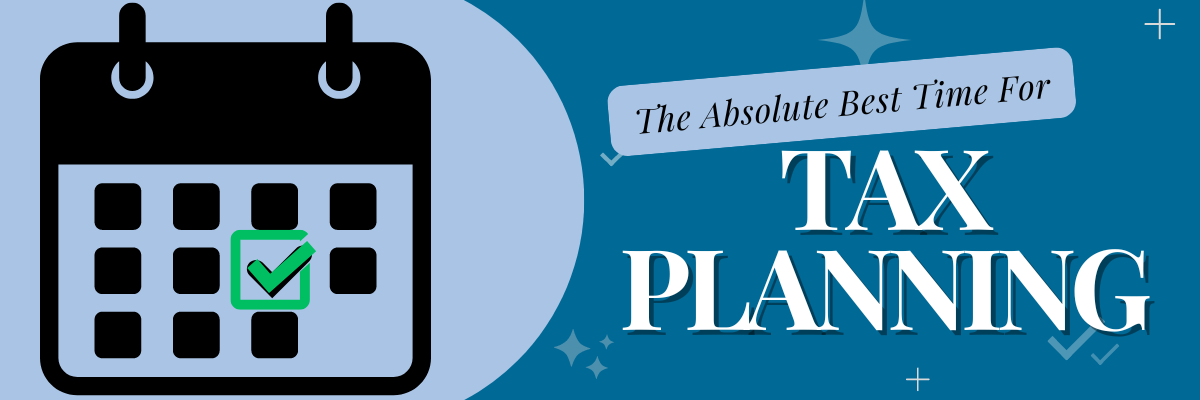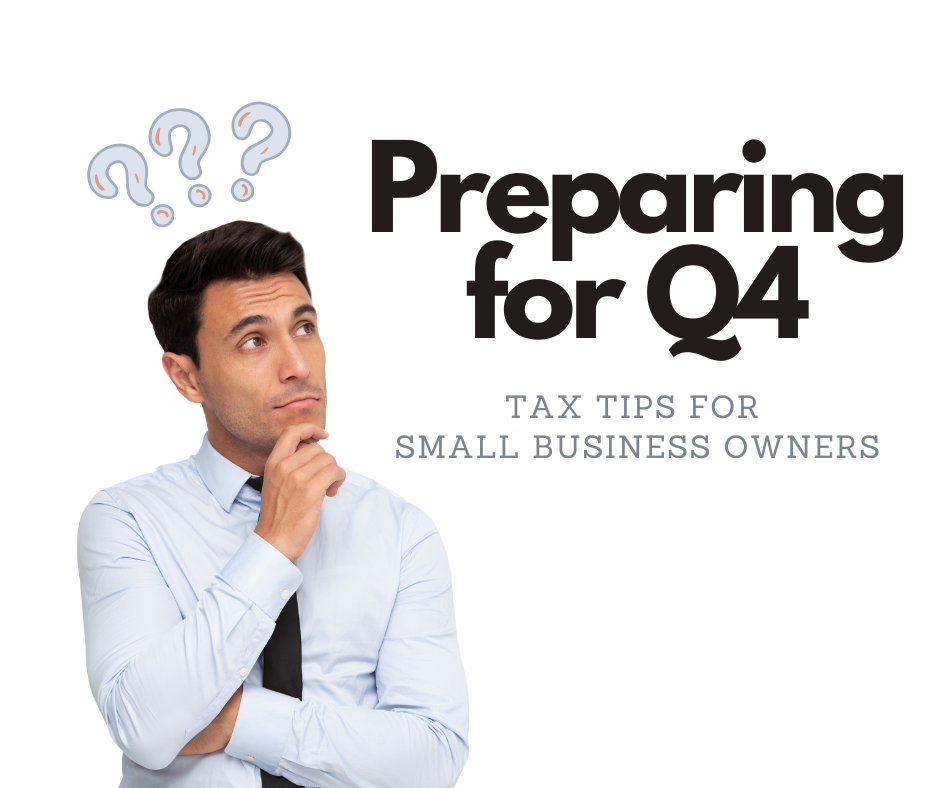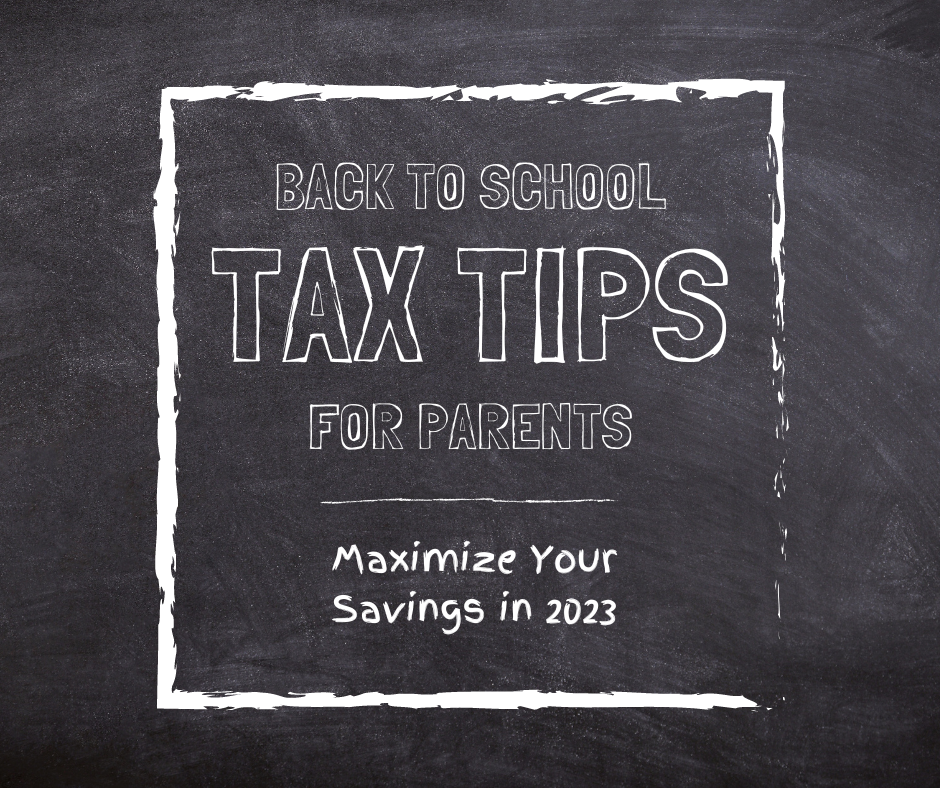Jeff Lethert • March 27, 2023
The top 5 things people stress over during tax season
Tax season can be stressful for many people, but it doesn't need to be. Our clients rely on us to take on the things that stress them out, and we are happy to be their trusted experts.
Here are the top 5 things people stress over during tax season:
- Not having all the necessary documents. This is a common stressor, as it can be difficult to keep track of all the paperwork required to file your taxes. If you don't have all the necessary documents, you may miss out on important tax credits or deductions.
- Making a mistake on your return. Even if you have all the necessary documents, it's still possible to make a mistake on your tax return. This can lead to costly penalties and interest charges from the IRS.
- Not understanding the tax code. The tax code is complex and can be difficult to understand, especially if you're not familiar with it. This can lead to confusion and stress, as you may not be sure what you need to do to file your taxes correctly.
- Not having enough time to file. Tax season can be a busy time, and it can be difficult to find the time to file your taxes. If you don't file your taxes on time, you may be subject to late filing penalties.
- Not being able to afford to pay your taxes. If you owe taxes, it can be a financial burden. If you can't afford to pay your taxes, you may be able to set up a payment plan with the IRS.
If you're stressed about taxes, there are a few things you can do to reduce your stress levels:
- Organize your documents. Make sure you have all the necessary documents before you start filing your taxes. This will help you avoid making mistakes and will make the filing process easier.
- Take your time. Don't rush to file your taxes. Take your time to understand the tax code and to make sure you're filing your taxes correctly.
- Get help. If you're struggling to file your taxes, there are resources available to help you. You can get help from a tax professional, from a volunteer tax preparation service, or from the IRS itself.
If you are ready to ditch the paperwork and forget the stress, give us a call. We are happy to help.
Share this article...

How did the taxpayer cross the road? Don't wait until the last minute to dart across. Most taxpayers in that situation end up as roadkill, tax burden wise. For taxpayers that time it right, we can methodically and carefully show you many, many concepts that will get you to the other side of the road with your tail still intact.

It’s hard to be logical all the time about everything. The most financially successful tax clients we serve at least attempt to force themselves to be logical, for their own benefit. For instance, our parents, as well as a subset of the economy including some popular radio show based advisors like Dave Ramsey, say you should pay off your home and have a “free and clear” deed as a goal (they are wrong in most cases by the way). That kind of thinking is emotional thinking, mixed perhaps with some presumptive attitude about what the general populous is capable of. “Well, we know we can’t get people to do what would really be best for them based on pure math and logic because its complicated and would require that they educate themselves, so the next best thing we can get them to do is (insert substandard advice here).” If advisors did not decide in advance what people are capable of, they would explain the math and the tax code and most people would be better off managing their home mortgage as an asset, and many people would also be better off never paying off a mortgage, but instead building an equal value or even more equity outside their home. With the current tax code altering mortgage and other deductions, everyone needs a refresher. How does this relate to wasting time and money? People will spend countless hours talking to many banks and other lenders trying to find the best rate, but no points because they feel they understand that part, so they can help themselves without outside advice. What they should do is spend that time learning how to manage their mortgage as part of their financial plan, and decide whether to build equity in a home, or the same equity outside a home. Then, when it’s time to shop the rate, simply go to a broker they can trust and say, “find me the best rate and prove it” and then spend their time on the bigger picture instead of spending all their time on what they do know, which can be delegated. Business owners are very often guilty of this as well. “I know tires, that’s why I opened a tire store! I don’t want to learn everything the accountant knows. I hate taxes!” This is human nature, understandable and SUCH A SHAME! They will spend countless days and nights trying to grow revenue and work their fingers to the bone, and then pay little to no attention to what they pay all their business partners: the IRS, the state, workers comp, accounting, payroll, HR and others, because they aren’t comfortable with the subject matter. We understand, but we also BEG that you change your behavior. We can help home owners and business owners learn in small bites the things they should be paying attention to, instead of what they are currently wasting time on.

Many times business owners have come into our office and with our help have found that they were doing things incorrectly regarding their bookkeeping and taxes. Occasionally, the errors add to the tax burdens that they have been under-reporting. That never feels good, but it is always better to fix those issues prior to any audit. Often, errors discovered “pre-audit” can be fixed by simply amending the return, and no IRS issues follow, and everyone just moves on. But quite often, the errors made were not in their own favor. In those case, we help them file amended returns that net them large additional refunds for up to three years back, and that always feels great! So, how do these mistakes happen? First, let us tell you a story. A young girl was watching her mother bake a ham for a family gathering and noticed her mom cutting off the ends before placing it in the oven. “Mom, why do you cut the ends off before baking the ham?” she asked. “Hmmm…I think it helps soak up the juices while it’s baking. I’m actually not sure, though. That’s just the way your grandma always did it, so I’ve just always cut them off. Why don’t you call grandma and ask her?” So, the little girl phoned her grandmother and asked “Grandma, mom is making a ham and she cut off the ends before placing it in the oven. She said that it’s probably to help soak up the juices but wasn’t sure. She said you’d know because she learned how to cook from you.” “That’s true. I do cut off the ends of the ham before baking. But I’m actually not sure why either. I learned how to cook from my mom. You should ask her.” So, the inquisitive little girl called her great grandmother and asked “Great grandma, mom and grandma said they learned how to cook a ham from watching you. Do you cut off the ends of the ham to help it soak up the juices?” The great grandmother chuckled. “Oh, no sweetie. I just never had a pan big enough to hold a whole ham, so I always had to cut off the ends to make it fit.” The allegory of the ham is not new, and has been told numerous different ways, but it is a great example of why accounting errors happen. Many businesses are purchased and the accounting system is inherited, but not reconfirmed as valid. In other situations, such as a small mom and pop business, neither owner is an accountant or even a competent bookkeeper, so they simply did their best, and as they grew and assigned the work to the bookkeepers they hired, the systems were never questioned. How it happens is not really important. It happens, A LOT! If you’re a business owner, don’t be afraid of an examination of your books by a proactive tax planning office. The majority of the time the errors that were favoring the IRS are corrected, amended returns are filed and overpaid money is recaptured. And, NO, getting a refund for an amended return does NOT put you in harm’s way, put you on a “watch list” or in any way add new issues, so don’t be afraid to ask the IRS for overpaid money back!

Tax season can be a stressful time of year for many individuals and businesses. The key to making tax preparation smoother and less daunting is to keep your financial records organized throughout the year. When your financial documents, receipts, and records are in order, you'll not only save time but also potentially maximize your deductions and minimize your tax liability. In this comprehensive guide, we'll provide you with practical tips and steps to help you get your financial records in order for tax season. Why Is Organizing Financial Records Important? Before we dive into the how-to, let's understand why it's crucial to keep your financial records in order: Minimize Stress: When tax season arrives, the last thing you want is to scramble to find documents and receipts. An organized system will reduce stress and ensure a smoother process. Maximize Deductions: Properly organized records can help you identify potential deductions you might otherwise overlook, saving you money. Avoid Penalties: Missing or inaccurate records can lead to errors on your tax return, potentially resulting in penalties or audits. Save Time: Organized records make tax preparation more efficient, saving you time and allowing you to focus on other important aspects of your life or business. Step-by-Step Guide to Organizing Financial Records 1. Create a Dedicated Workspace Designate a specific area or folder for all your financial documents. This can be physical, like a filing cabinet, or digital, using cloud storage or financial software. Having a dedicated space will help prevent documents from getting lost or mixed up with personal items. 2. Set Up a Filing System Establish a clear and logical filing system. Use categories such as "Income," "Expenses," "Deductions," and "Bank Statements." Within each category, create folders for each tax year. Label folders with the tax year (e.g., "2023 Taxes") for easy reference. 3. Save Digital Copies Scan paper receipts and documents and save them as digital files. Digital copies are easier to search and organize, and they serve as backups in case physical copies are lost or damaged. Organize your digital files using the same categories and folders as your physical system. 4. Track Income Keep thorough records of all sources of income. This includes pay stubs, invoices, 1099 forms, and any other income-related documents. Create a separate folder for each income source within your filing system. 5. Document Expenses Record all expenses, both personal and business-related, throughout the year. This includes receipts for purchases, utility bills, medical expenses, and more. Be sure to note the purpose and date of each expense on the receipt. 6. Categorize Deductions If you're eligible for tax deductions, maintain detailed records for each one. This might include charitable donation receipts, education expenses, or home office expenses if you're self-employed. Organize deduction-related documents in a separate folder within your filing system. 7. Bank and Financial Statements Regularly review and organize your bank statements, investment account statements, and credit card statements. Make sure they match your recorded income and expenses. File these statements in a dedicated folder. 8. Quarterly Check-Ins Set aside time each quarter to review and update your financial records. This prevents the accumulation of a massive, overwhelming task during tax season. Quarterly check-ins also help you catch errors early. 9. Use Financial Software Consider using accounting software or apps like QuickBooks, FreshBooks, or Mint to track your finances automatically. These tools can help you categorize expenses, generate reports, and simplify the organization of financial records. 10. Consult a Professional If you're unsure about tax laws or how to organize certain records, don't hesitate to consult a tax professional or accountant. They can provide guidance, ensure compliance, and help you make the most of available tax benefits. Final Thoughts Getting your financial records in order for tax season doesn't have to be an overwhelming task. By following these practical steps and maintaining a disciplined approach throughout the year, you can save time, money, and stress when it's time to file your taxes. Remember that organization is the key to success, and the benefits extend beyond tax season, providing you with a clear financial picture year-round. So, start today, and make tax season a breeze! Remember to consult with a tax professional for specific advice tailored to your unique financial situation.

As the year inches closer to its end, small business owners are not only gearing up for the holiday season but also for the annual tax season. While taxes may not be the most exciting aspect of entrepreneurship, they are a crucial part of your business's financial well-being. Fortunately, with some strategic planning, you can maximize deductions, take advantage of credits, and optimize your finances before the calendar flips to the next year. Here are some actionable tax tips to help small business owners prepare for Q4. 1. Organize Your Financial Records Before diving into tax planning, ensure your financial records are in impeccable order. This includes all income and expense documents, invoices, receipts, and bank statements. Use accounting software or hire a professional if necessary to streamline this process. Organized records not only save time but also reduce the likelihood of errors during tax filing. 2. Review Your Business Structure Consider your business structure (e.g., sole proprietorship, LLC, S-corp) and evaluate whether it's still the most tax-efficient choice for your situation. The structure can have a significant impact on your tax liability. Consult with a tax advisor or attorney to determine if a change is warranted. 3. Maximize Deductions Small business owners have a plethora of deductions available to them. Some common deductions include: Home Office Deduction: If you work from home, you may be eligible for this deduction, which allows you to deduct a portion of your rent or mortgage, utilities, and home maintenance costs. Business Expenses: Ensure you're claiming all legitimate business expenses, such as office supplies, equipment, software subscriptions, and travel expenses. Vehicle Expenses: If you use a vehicle for business purposes, you can deduct related expenses. Keep a mileage log to track business-related trips. Healthcare Costs: If you're self-employed, you may be able to deduct a portion of your health insurance premiums. Retirement Contributions: Contribute to a retirement plan, such as a SEP-IRA or a Solo 401(k), to reduce taxable income while saving for the future. 4. Take Advantage of Tax Credits Tax credits can significantly reduce your tax liability. Some credits that may apply to small businesses include: Small Business Health Care Tax Credit: If you provide health insurance to your employees, you may qualify for this credit. Work Opportunity Tax Credit (WOTC): If you hire individuals from certain target groups, you may be eligible for this credit. Research and Development (R&D) Tax Credit: If your business engages in qualifying research activities, you could benefit from this credit. 5. Consider Equipment Purchases If your business needs new equipment or machinery, consider making these purchases before the end of the year. The Section 179 deduction allows you to deduct the full cost of qualifying equipment in the year it's placed in service, up to a specified limit. 6. Monitor Estimated Tax Payments Stay on top of your estimated tax payments. Review your financial performance throughout the year, and adjust your payments accordingly to avoid penalties for underpayment. A tax professional can help you with this calculation. 7. Plan for Retirement Contributing to a retirement account not only helps secure your financial future but can also reduce your taxable income. Explore options like a Simplified Employee Pension (SEP) IRA, Simple IRA, or Solo 401(k) and maximize your contributions within the legal limits. 8. Seek Professional Guidance Navigating the complexities of tax planning and compliance can be challenging. A certified tax advisor or CPA can provide personalized guidance, ensuring you take full advantage of all tax opportunities and stay compliant with tax laws. 9. Stay Informed Tax laws change frequently, so staying informed is crucial. Subscribe to newsletters, attend webinars, and follow reputable tax sources to keep up with the latest updates and tax-saving strategies. While taxes can be a daunting task for small business owners, they don't have to be overwhelming. By following these tax tips and staying proactive, you can better prepare for Q4 and set your business up for a financially successful year ahead. Remember, tax planning isn't a one-size-fits-all endeavor, so seek professional guidance to tailor your strategy to your unique circumstances. With careful planning, you can reduce your tax liability and keep more of your hard-earned money in your business.

Have you worked toward losing weight in the past because you want to look more attractive, or fit into an expensive wardrobe you already own? When you lose weight you often also lower your blood pressure and/or cholesterol as a bonus. It might not be the primary motivation, but the extra benefit is of course welcome! If you are a business owner, then we pose this question. Some time ago you had an idea. Over the years your turned that idea into a successful and profitable business. Have you properly protected what you worked so hard to build? An unexpected turn of events could put your biggest asset at risk. Did you know that moving business earnings into a qualified[…]

When you start tax planning with a new client, the first thing people often ask is why the accountant or CPA they are using doesn’t think or act the way you do in discussing the hunt for possible tax savings. After all, the current CPA is smart, trustworthy, running a successful accounting business and well respected in the community. So, why are you telling them all these wonderful new tax savings ideas that their CPA has never mentioned? There are many explanations, but the simplest is how the accountants themselves view the job that they do. Often, accountants think that the profession of accounting in its simplest form is the job of telling the story of money that has already[…]

At this time of year many people who were getting a refund have already filed their tax return. It leaves the remaining majority of folks who, despite having withholdings, are still going to owe additional tax. We talk a great deal about tax planning and changing behaviors to achieve better outcomes in the future, but many are faced right now with a tax bill for last year. So, what can be done? Anything? The answer is YES! It’s actually simple and easy for most folks to substantially reduce the tax liability they are facing by opening a prior year IRA! It is one of the very few ways the IRS allows you to retroactively affect your taxes. What if you[…]


